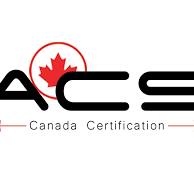Petroleum, petrochemical and natural gas industries management system ISO 29001:2020 certification is a procedure for confirmation of a degree of product and service supply organization’s management system conformity to requirements of a particular standard.

Petroleum, petrochemical and natural gas industries management system ISO 29001:2020 certification is a procedure for confirmation of a degree of product and service supply organization’s management system conformity to requirements of a particular standard.
ISO 29001 scope is Petroleum, petrochemical, and natural gas industries Sector-specific quality management systems requirements for product and service supply organizations. This standard is written as a supplement to ISO 9001:2015 and Petroleum, petrochemical, and natural gas industries management system certification is performed by independent competent auditors and experts of ACS,
Who have the necessary experience and training in the scope of conducting audits for compliance with the requirements of audited standards, as well as competence in the field of activity of an organization being audited.
In case of successful completion of the certification procedure, a client receives a Certificate of Conformity, an official document, confirming that organization’s management system meet the requirements provided by the standard.
ISO 29001:2020 is written as a supplement to ISO 9001:2015. These supplementary requirements and guidance to ISO 9001:2015 have been developed to manage supply chain risks and opportunities associated with the petroleum, petrochemical, and natural gas industries to provide a framework for aligning requirements with complementary standards employed within the industries.
The major difference between ISO 29001:2020 and ISO 29001:2010 is risk-based thinking. The concept of risk-based thinking has been implicit in previous editions of this International Standard, e.g. through requirements for planning, review, and improvement.
This International Standard specifies requirements for the organization to understand its context and determine risks as a basis for planning. This represents the application of risk-based thinking to plan and implement quality management system processes and will assist in determining the extent of documented information.
One of the key purposes of a quality management system is to act as a preventive tool. Consequently, this International Standard does not have a separate clause or sub-clause on preventive action.
The concept of preventive action is expressed through the use of risk-based thinking in formulating quality management system requirements. The risk-based thinking applied in this International Standard has enabled some reduction in prescriptive requirements and their replacement by performance-based requirements.
ACS Canada takes great pride in being a dynamic collaboration of highly experienced managers and experts hailing from Canada, the United States, and Asia.
With a wealth of over 25 years in organizational and operational expertise encompassing quality management, food and agriculture safety, environmental practices, and occupational health and safety, we have emerged as the preferred choice for comprehensive management systems assessments.
We are truly honored to be recognized as an esteemed A+ accredited business by the esteemed Business Accreditation Bureau of Canada. This recognition underscores our unwavering commitment to delivering top-tier certification services.
We are thrilled to announce that ACS Canada has joined the prestigious ranks of the International Association for Continuing Engineering Education (IACEE). As a member, we are deeply committed to advancing and enriching lifelong engineering education worldwide.
This affiliation with IACEE empowers us to further enhance the quality and reach of our seminars and training courses. Our participants, who receive ACS Canada training certificates, now stand to benefit even more. This membership opens up a world of opportunities, connecting them to a global network of engineering education excellence.
In addition, we take immense pride in our collaboration with ACS USA, an esteemed certification body comprising seasoned industry professionals and managers from North America. Through this invaluable partnership, we leverage our combined expertise to provide unparalleled services to our esteemed clients.
As proud members of IFOAM-Organics, a distinguished global membership-based organization, we actively contribute to the promotion of true sustainability in agriculture worldwide.
Our dedication to fostering industry growth is further exemplified by our membership with Food Processing Skills Canada (FPSC). Through close collaboration with Canadian government, FPSC develops pragmatic programs and policies that resonate with the ever-evolving food industry.
At ACS, our core purpose revolves around equipping individuals and companies with the essential tools to become leaders in their respective industries. We firmly believe in elevating management certification to the status of a pivotal business discipline, thereby making certification competencies and skills accessible to individuals worldwide.
We are steadfast in our mission to democratize business certification competencies and skills by positioning management certification as a fundamental business discipline.
Through the collective efforts of a global board of experts, we strive to develop industry standards and a comprehensive body of knowledge for management certification. Our mission extends beyond mere development as we are committed to providing widespread access to effective learning mechanisms that cultivate these invaluable skills.
Recognizing the achievements of individuals, we issue globally recognized certificates through our extensive network of esteemed partners.
As trailblazers in the realm of certification bodies, we envision ourselves as the driving force behind the establishment of global standards and the body of knowledge for management certification.
Guided by the expertise of our esteemed board, we define the competencies and skills necessary for certification, ensuring their enduring relevance in the ever-evolving business landscape. Through our extensive network of partners, we empower individuals across the globe to access these critical competencies and skills, enabling them to attain professional recognition and unlock their growth potential.
© 2025 coursetakers.com All Rights Reserved. Terms and Conditions of use | Privacy Policy